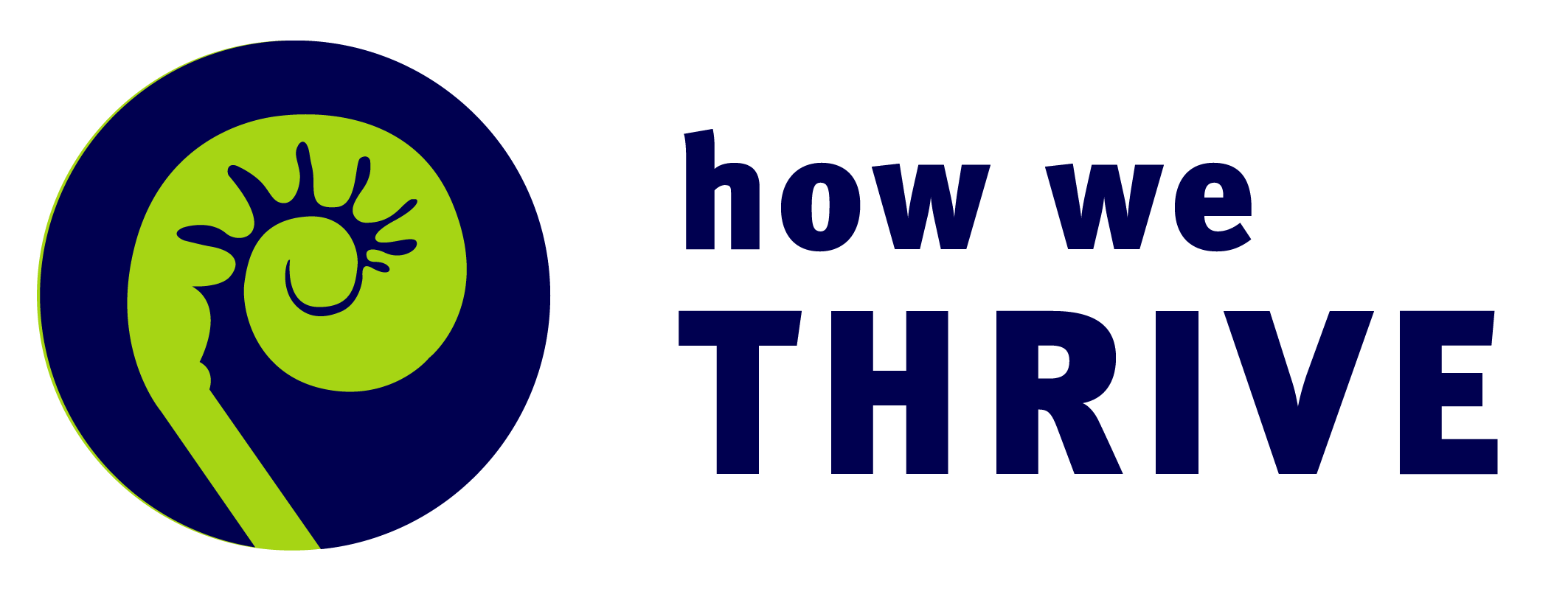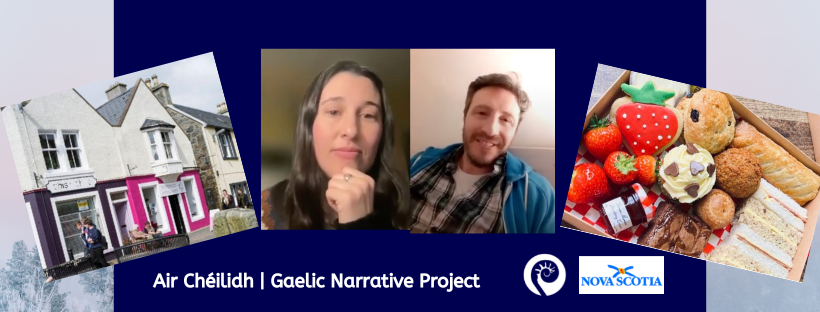Radical hospitality
March 3, 2023
Host: Kieran Walker
Guests: Òmar Bhuchanan, Tèarlach Wilson
In this visit we explored ways of ensuring that all members of our communities feel safe and welcome. We delved into traditions of hospitality in Gaelic communities and looked at how diverse experiences of LGBT+, neurodiverse, and other Gaels and non-Gaels fit into these traditions. Our guests shared stories of creating hospitable spaces, and the challenges and rewards they experienced along the way.
Òmar | Amber inherited the art of hosting through much time spent in the kitchen of Mòr ni’n Mhurchaidh Dhòmhnaill | Sadie Mae MacInnis, her great grandmother on the North Shore of Cape Breton Island. She’s also co-created many inclusive spaces for connection, healing, and decolonizing through Gaels Jams and with her business, Inside Out: Pathways.
Teàrlach | Charles is the founding director of An Taigh Cèilidh CIC—a Gaelic community centre with in-house café and events in Stornoway on the Isle of Lewis, Scotland. He is fluent in both Welsh and Scottish Gaelic and has a unique intersectional identity as a queer speaker of two minority languages, while also being on the autistic spectrum.
What we heard
The session began with Òmar and Teàrlach reflecting on what Gaelic hospitality means to them. Òmar said that when someone dropped in, Gaels made time to visit. Work was often paused, and the kettle put on so guests could be served tea and a bite to eat. She said the visit is about interconnectedness. “A visit remembers that interconnection. It practices that interconnection.”
She remembers visiting older women with her little daughter, who was often given a necklace or brooch. She said, you rarely left a Gaelic person’s house without a little something to take with you.
“So that radical generosity is part of radical hospitality as well,” said Òmar. “There’s something very old and wise about this. There’s some kind of magic and healing that happens when we are radically kind to each other.”
Teàrlach’s experience of hospitality deepened during his field work for his Ph.D. thesis, when he spoke to Gaelic speakers over the age of 70 in the Inner and Outer Hebrides. “And cupan tì doesn’t just mean just a cup of tea," he said. "It comes with sandwiches and biscuits and it's never-ending. When I did my Ph.D. I definitely put on weight. I even interviewed one lady in Lewis on a Saturday evening, and she packed my bag with food for the Sabbath, which is lovely, really beautiful.”
His research revealed a lot of social isolation. Some people would go days without speaking to anyone, in English or Gaelic. Gaels lamented the loss of the céilidh (visit) and the taigh-céilidh, which was a home in the neighbourhood that was known as a gathering place.
This was the impetus behind An Taigh Céilidh, a community center/ café Teàrlach co-founded, where Gaelic is spoken and encouraged.
He was inspired by visits to Italy and Poland where he was expected to speak Italian or Polish, and where there wasn’t a categorizing of speakers based on fluency.
“It made me realize that we have to try and replicate those experiences where people have to use Gàidhlig. And once Gàidhlig became the unmarked code of the space . . . the distinctions begin to blur. You don’t get beginners, intermediate, fluent, native. You just have people who need to communicate."
As a queer Gaelic speaker and Gaelic officer of Hebridean Pride, he does realize that for some Gaels, hospitality has its limits.
"Gàidhlig culture, particularly on Lewis, is actually intertwined with quite a strict version of Presbyterianism that actually can be very uncomfortable or even judgemental and ostracizing about some different identities such as LGBTQ2+ . . .Every pride event in Lewis has protestors from the local free church telling us that we are wrong and we're sinful. It is incredibly difficult to find that loving community (and) be from outside the Presbyterian norms – which to me comes across as a form of control from certain institutions and individuals that does not benefit the community either. But they have been through so much colonialism already that you can’t come in and tell them their religion is wrong, because that’s just another type of colonialism coming into their community. So it really has to be led by them.”
Everyone is welcome at An Taigh Céilidh as it practices radical hospitality and kindness.
“We want to include everyone. Whether you are a really strict Presbyterian or two spirit, you are welcome at the Taigh Céilidh…. “We are knitting this world where we realize there are other minority communities that need to feel seen and welcomed within Gàidhlig community and culture.“
Their approach is working. Barriers have come down as learners and native speakers naturally converse at An Taigh Céilidh. His co-president picks up elders in her car and takes them to the café and to events, helping with social isolation. Learners who have only experienced Gaelic in school get to speak it in an informal environment.
“It’s so simple in a way. So simple, just creating this Gàidhlig space.”
Òmar’s way of creating a welcoming space involved bringing the Gaels Jam to Nova Scotia. YES! is an international organization that offers "Jams" or gatherings to discuss community, change and how to build a more just and thriving world for all.
"We have been doing Jams in Gaelic Nova Scotia for 10 years. We actively and intentionally practice hospitality where every single person is welcomed, no matter your race, age, class, race, gender or sexual orientation. . . . We all have that basic commonality and humanness that connects us."
On the first day of the Gaels Jam, one of the hosts will spend 10 minutes letting people know how welcome they are.
Amber said coming from a colonized culture that has lost so much so fast, it is easy for her to see why people want to protect what they have. She said it's important to examine whether some of the things we deem as traditionally Gaidhealach may have been born out of a time of trauma, fear and panic and don't serve everyone in the community.
She said she finds it important to do her own work, examining her own biases and judgements.
"The more I can do that, the more I can make space for everyone else – actually the more I can be kind and loving to myself, too. I loved what (Teàrlach) said about all these classifications. It's easy for us who are trying to reclaim our minority language to be hard on ourselves. . . .So that hospitality can extend inward as well.”
What we said
Some of our comments were shared in the chat stream during the conversation with the guests. Then, in the breakout rooms, we all responded to the stories we’d heard, and shared our own reflections. When we returned to the main room, we wrote some highlights and themes in the chat stream. Read all our comments.


